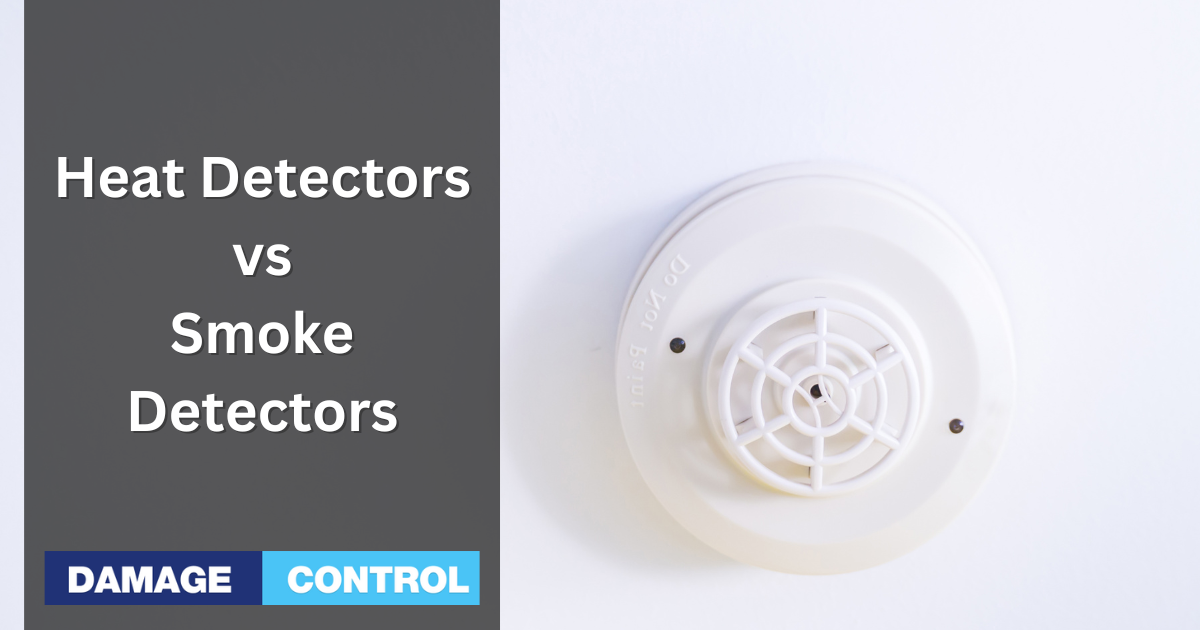Have you ever found yourself in a quandary when deciding between a heat detector and a smoke detector? Though these silent guardians might look similar, they serve distinct roles in ensuring your safety. Let's dive in to explore the differences between these two critical devices!
Understanding Heat Detectors
Heat detectors, like vigilant night guards, are always on high alert. They sense the invisible enemy – heat. Triggered when the temperature exceeds a specific limit, they ensure our safety, day in and day out.
Heat Detectors: Slow but Reliable
You might wonder, “Why would I want a slower device?” Well, it's not all about speed. These detectors play the long game. Their slower response gives them an edge in reducing false alarms. That's right, fewer heart-stopping moments when you burn toast in the morning! Their motto might as well be, “Slow and steady wins the race.”
Ideal for High-Temperature Areas
Ever thought about where to place heat detectors? You'll want to choose areas prone to high temperatures. Kitchens, with their bustling ovens and stovetops, or garages, often home to heat-generating machines, are prime locations. Heat detectors stand tall and firm in these heat-prone areas, making them ideal guardians against unexpected fire hazards.
The Flip Side: A Slower Response
However, no device is without its quirks. The slower reaction time of heat detectors is their Achilles' heel. In the event of a rapidly spreading fire, every second counts. Unfortunately, heat detectors may lose this race against time.
So, while heat detectors are true assets in fire safety, they have unique pros and cons. Understanding these helps us make informed decisions and reinforces our line of defense against fire mishaps. Remember, knowledge is power when it comes to safety!
Introducing Smoke Detectors
Smoke detectors, the speedy saviors in fire safety, respond to smoke presence, as you'd expect. But they're not just one-trick ponies! Let's unravel the intricacies of these devices:
Rapid Response
Think of smoke detectors as the hares in the race against fire. Their quick-to-react nature allows them to sense fires faster than heat detectors, particularly those pesky, smoldering fires that produce plenty of smoke but little heat. The moment they sniff out smoke, they sound the alarm, giving you precious time to react.
Flexible Placement
Another feather in the smoke detector's cap is versatility. Whether it's a bedroom filled with plush toys or a living room adorned with wooden furniture, smoke detectors can be installed virtually anywhere in your home. Their flexible nature allows them to blend seamlessly into various settings, all while keeping an eye out for danger.
The Catch: False Alarms
But, as with most things, smoke detectors aren't perfect. They have a somewhat annoying tendency to cry wolf, sounding false alarms in response to harmless steam, innocent cooking smoke, or even wandering dust particles. That unexpected shriek when you're enjoying a hot shower? Yep, that's your overzealous smoke detector being a tad too cautious!
In the grand scheme of fire safety, smoke detectors play a critical role. However, understanding their strengths and weaknesses enables us to use them more effectively. After all, even superheroes have their kryptonite!
The Ultimate Duel: Heat Detector vs Smoke Detector
Now, let's prepare for the showdown – heat detector versus smoke detector! How do you decide which device wins a spot in your home? Here's a three-point guide to help you out:
Type of Fire
The nature of the potential fire is a significant factor to consider. Smoke detectors take the cake when it comes to slow-burning, smoky fires. They're like detectives, sniffing out even the slightest hint of smoke. On the flip side, heat detectors are the champs of fast, high-heat fires. They wait patiently, springing into action when the temperature spikes.
Placement
Where to place each detector is another crucial point. Smoke detectors, versatile and alert, excel in bedrooms and living rooms. They keep watch over your peaceful slumbers and family movie nights. Heat detectors, on the other hand, prefer the kitchen's heat or the garage's hustle. These areas, prone to high temperatures, are where heat detectors shine.
False Alarms
Finally, the nuisance of false alarms. If the ear-piercing shriek of a false alarm is something you'd rather avoid, heat detectors could be your best bet. With their slow and steady approach, they're less likely to jump the gun, offering you a more peaceful living environment.
Choosing between a heat detector and a smoke detector isn't a decision to take lightly. It's about evaluating your needs and making an informed choice. Armed with this knowledge, you're all set to make the best decision for your home's fire safety.
Finding the Right Balance
Truth be told, it's not about choosing one over the other. It's about finding the right balance. For comprehensive fire protection, consider using both devices on your premises. This way, you get the best of both worlds – the fast reaction of smoke detectors and the specificity of heat detectors.
In the end, it's all about safety. Whether it's a heat or smoke detector, the goal remains the same – protecting your property and the lives within it. Make an informed choice and ensure the best fire protection for your premises!

